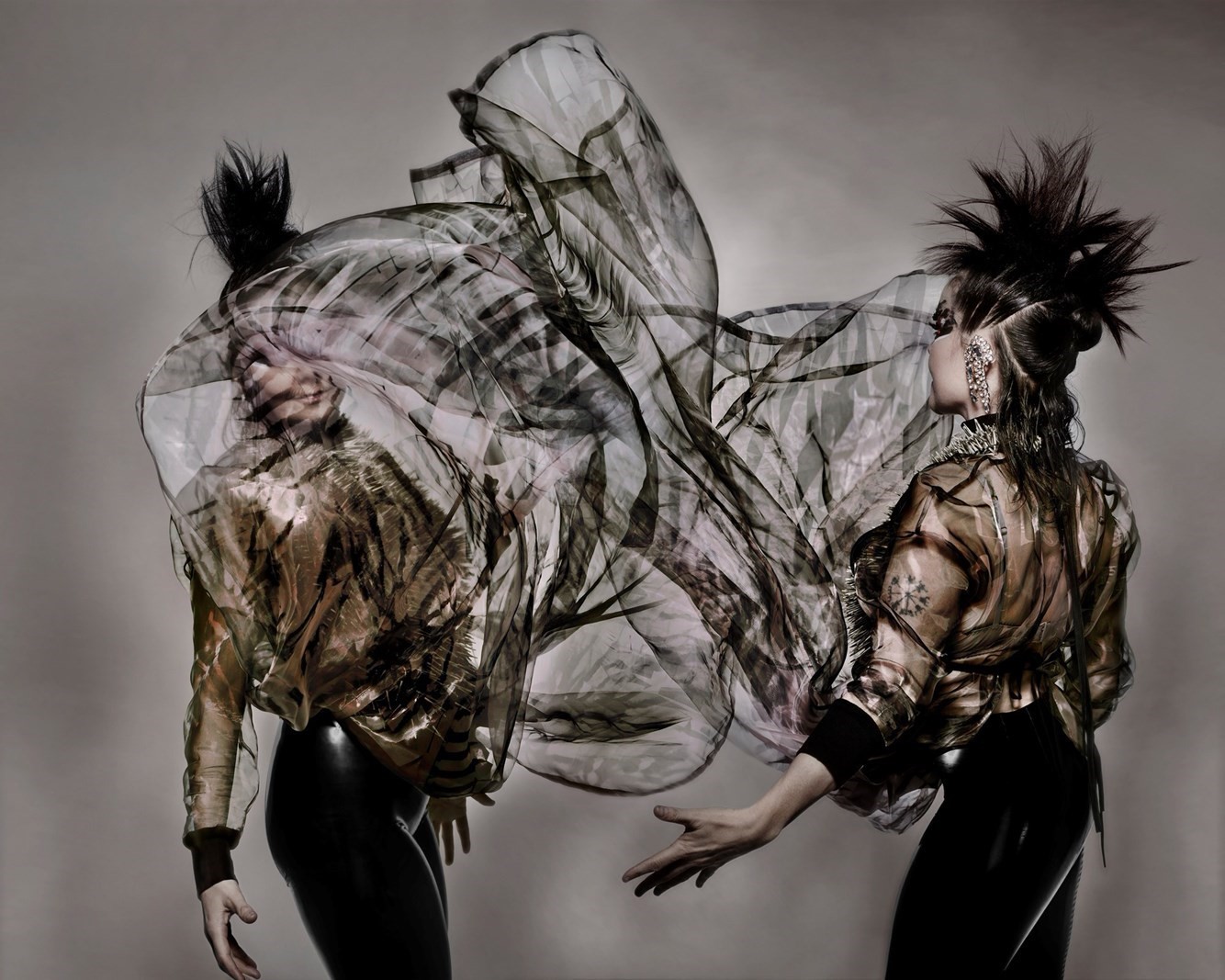AnOther Magazine: Maybe we could begin by talking about characters?
Björk: When I’m on stage, I’m tapping into something that everybody is. The Vulnicura album cover shows the emotional cold nights that I was at when I wrote the album, but it’s the cold nights that anybody could have at times in their life. So it’s more like a Tarot card, or symbolic for that state of mind.
Julia Davis: Yeah, but it is also truthful about you. I think what I do is less truthful than what you do, because my characters are things I can hide behind. I can say really crazy things, but that’s not me.
B: Where do the ideas for your characters come from?
JD: I always start with a voice. I did this TV series called Human Remains a long time ago with Rob Brydon…
B: Yeah! I love it so much, it’s hilarious!
JD: With that, we sat down and went, “OK, be somebody.” It was a bit like being a child. Rob would come up with a voice and I’d interview him as this made-up person, and I’d think, what character would go with that voice? Sometimes it would work and sometimes it wouldn’t. But I want to know how you write your songs. Do you feel it comes from some unconscious part of you?
B: The best bits are the ones I don’t understand. When I was a kid I had a long walk to school, and in the winter it was pitch black in the mornings. It is kind of crazy thinking about it now, letting a six-year-old walk 40 minutes to school.
JD: On your own?
"I go to my cabin, go for a walk in the mountains, and after 20 minutes you just start humming and then the melodies kind of pop out, you know?" – Björk
B: Yes, in the dark, on my own. I am actually better for it, but me and my mates laugh now, because we would never do it to our kids. So, anyway, just without being conscious of it I’d make up melodies, and it still works for me. I go to my cabin, go for a walk in the mountains, and after 20 minutes you just start humming and then the melodies kind of pop out, you know? I was just listening to my dictaphone from the aeroplane, and it is helpful to record ideas, but actually the best melodies are the ones you remember – they come back to you. You just wake up in the morning and they’re there, going in circles. That actually is a question I could ricochet back to you. How do you mull over a character?
JD: If it’s a character that works well, like, say, Jill in Nighty Night, I know what she would do in any situation. But then, I played someone recently and I wasn’t sure who she was, which was really uncomfortable. I think in comedy, you only hit about one or two great characters in your career. Sometimes my character will be just a sketch… what is the funniest situation to put this person in? What kind of person would be difficult for them to be next to, which will make it funny? But I directed an ensemble thing recently [Robin’s Test] and that’s more about the group and who affects who.
B: Can I ask you one sort of ‘woman’ question? Because it is often the role of women that they oversee the home, building bridges, making sure there is flow. I find as I get older that I’m thinking more about the big picture. So, it is the vocal melody, but it’s also the strings and the harps, and the beats. Do you find the older you get that the director, or the author, becomes bigger and fatter and the character you would be acting becomes smaller? We ladies are good at multi-tasking and the equilibrium between groups.
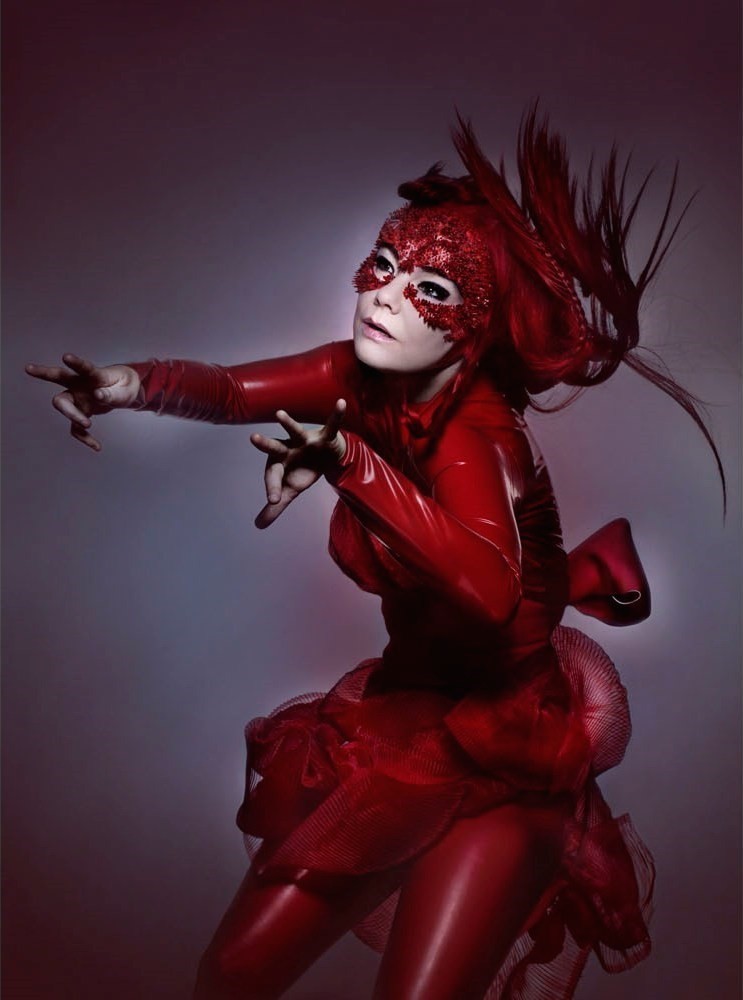
JD: I haven’t thought of that before, but directing was much more about exactly that. I do feel I’m stepping back a bit from being a character, and wanting more to make all those teams work together. Robin’s Test is more contemporary than what I normally do. It’s about couples going on a camping holiday, for a 50th birthday. Two couples go, and then this other couple were going to come, but they’ve broken up, and so the man from that couple turns up, but with a new girlfriend that nobody likes – and I’m playing that character. I’d love to find a lifelong female film editor as Scorsese has with Thelma Schoonmaker. I think women are probably, without generalising, sensitive to subtle things as an editor. What are you working on at the moment?
B: I’m writing my next thing. I’m still allowing myself to be a submarine; I don’t totally have the view of it yet. It’s funny, each album is different for me. Like, what comes first? With this one it’s maybe the melodies. This is very abstract, but the melodies have a similar kind of shape. But it’s really early on, and I don’t even know if I should say, but I have got three songs down with Alejandro [Ghersi, AKA Arca], who I worked with on the last album [Vulnicura]. The last album, we sort of call it “hell” – it was like divorce! So we are doing paradise now. Utopia. We have done hell, we have earned some points.
JD: Do you have deadlines, or is that up to you?
B: I have a really good team. The guy from my record company is my manager – my friend from back in the punk days, we met when I was 16. He was the bass player for Flux of Pink Indians on the Crass label, and I was in a band on Crass [KUKL], and it was very anarchic – this philosophy that it is ready when it is ready. It should be from the artist’s point of view, not the business one. So I am very blessed that way. A lot of my mates have the same job as me, and they definitely have not had that.
"I think women are probably, without generalising, sensitive to subtle things as an editor" – Julia Davis
JD: That is one thing I really hate about working in TV – you have to shape episodes to exact time-lengths, do like 22 minutes, and it is just so against what you are making. It’s like some carpet they want to chop up.
AM: When did you become aware of each other’s work?
JD: Living in Bath during the 90s, I remember having lots of friends who were obsessed with you…
B: I saw the stuff you did with Steve Coogan, and then Human Remains… I just watched Brass Eye on my phone, and it’s crazy!
JD: Yeah the paedophile special, where we all got named and shamed in the Daily Mail.
AM: And you did [the Chris Morris Radio 1 comedy] Blue Jam.
JD: Yes, that was almost my first job. I came from Bath to London to do that, and wasn’t fully aware of who Chris Morris was. I remember going to the studio, and he would always wear a bandana. I was like, “Who is that guy?” We were in this basement, and he’d say, “Imagine you’ve got flu, and you’re quite fat…” – these really weird ways of getting into the voice, which I loved. And then doing all the sound effects, smashing up melons. There’s something about radio that’s more fun, really.
B: More liberating.
JD: You could just be. Everyone, with their eyes closed, trying to come up with these characters.
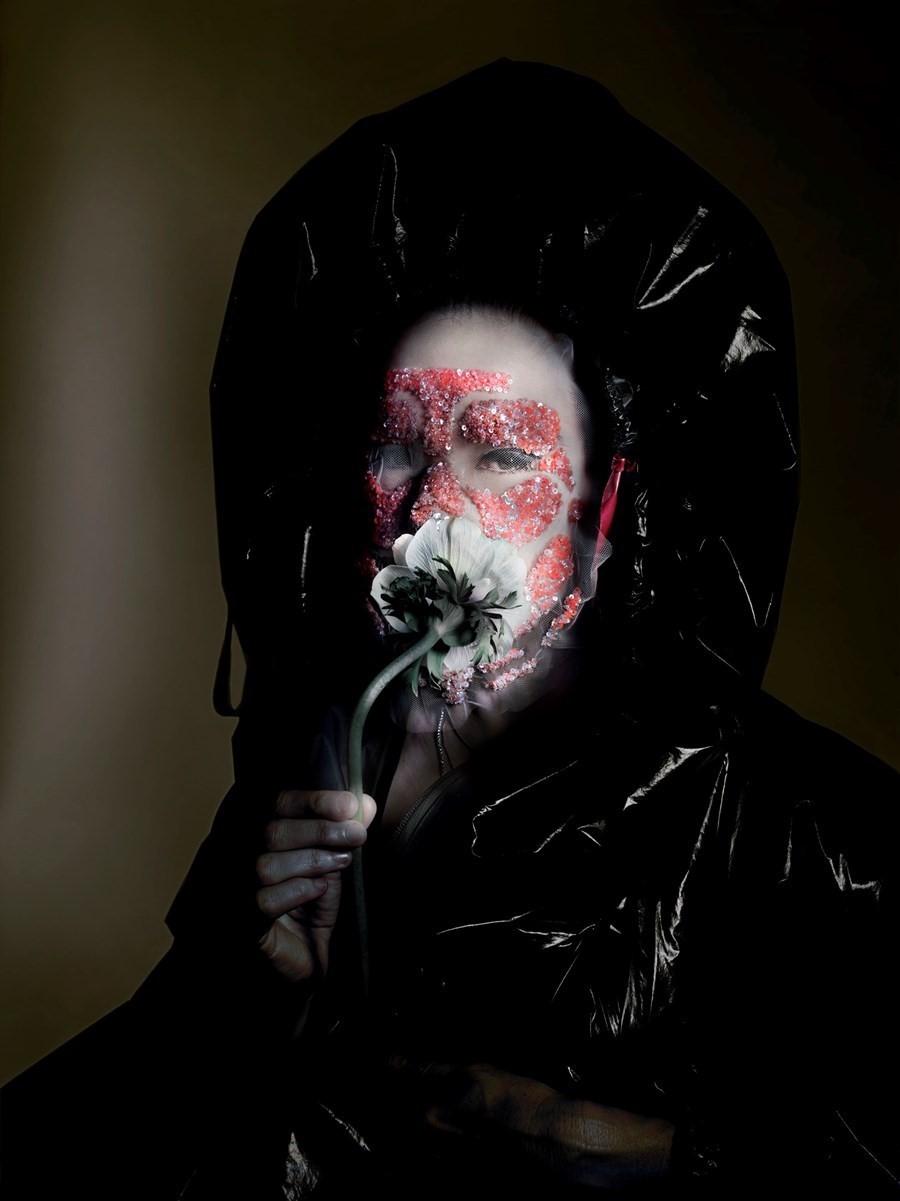
B: I want to steer the conversation casually towards roots. If my roots are volcanoes, are yours druids? I noticed there is one spiritual scene in a lot of your things, where there is like a fire, a rootsy ritual. Tapping into the more occult side of you. I hope that isn’t too far-fetched!
JD: My upbringing was quite strict; Christian, church-going, repressive, which I think had a really bad influence on me as a child. It was, “God is watching you, and you’re going to be punished, even for the thoughts you have.” Everything got quite twisted up in me with what that meant. So I’ve sort of gone the other way. I’m a Satanist. No, but I do slightly believe in spiritual or psychic things. I’ve been to loads of psychics. I’m very against church, really, because for me it’s a really depressing, frightening place. But I believe in a good force, and do pray quite often, but I don’t know, beyond that, what I am. What about you?
B: Luckily I had no religion in my upbringing, zero, but obviously, coming from Iceland, without it being pretentious or anything, nature means a lot to me, but not in the way people think. It’s not this romantic, idyllic, let-us-go-back-into-the-caves thing. That’s why I get annoyed when I get all my elf and volcano questions from people who have watched too much Lord of the Rings. There is a truth in it, but it is also a lazy cliché. But it seems like you’ve pushed against that restriction a lot?
JD: In my comedy, definitely. To be honest, I think it still haunts me in my real life. It’s hard to shake off your childhood “things”, you know? I feel very conscious of it as a parent, shaping your children, for good and bad – what impact everything you’re doing has on them.
B: Yeah, I had the opposite upbringing. There were no rules. I almost had to bring rules in, if I needed them, which I didn’t very much. Like, I was always late for school, so I started tricking my family… My mum and my step-dad had long hair and they were a bit hippie-ish really, and I would wake up first, to the alarm clock, from maybe ten years old. I would go in the kitchen, and turn the clock 15 minutes early, and then I would wake them up. And then wake them up again five minutes later. And again. It took, like, four rounds. And then I’d wake my little brother, and then everybody would brush their teeth, and I would make sure I was the last one to leave and then correct the clock. I did that for years.
"We were in this world where women ruled. And then as I got older I hit these walls, as a woman, or a girl, and I didn’t understand why, because I was just spoilt rotten as a kid; the boundaries weren’t there" – Björk
JD: Everyone I know who had that type of childhood is desperately trying to find boundaries now. I’m the opposite with my children, because of my upbringing. I’m always letting them express everything. Clocks were massive in my house – clocks everywhere, ticking clocks, and alarms going off. So I hate clocks! What was your school like?
B: I went to the first Montessori school in Iceland. Every two weeks you got a list of the stuff you had to do, and then you did it in your own time. I loved it, because you are your own boss. I take it you went to a Christian school?
JD: My first, aged four, was a very strict and strange [Church of England] school, run by these scary old ladies, ‘Auntie May’ and ‘Mrs Williams’. They would watch over you when you ate the food, which was absolutely disgusting. I remember my brother was actually sick around the edge of his plate, but he still had to eat the remaining bit. All those weird British tortures. I like the sound of your school, I’d like my kids to go somewhere like that.
B: I have got to give it to my mum… I only value it now, especially after I moved to New York. She picked a little house on the outskirts of Iceland, by Reykjavík. It leaked when it rained, so we had to wake up in the middle of the night and empty buckets. But what she did was take us out of the patriarchy. We were in this world where women ruled. And then as I got older I hit these walls, as a woman, or a girl, and I didn’t understand why, because I was just spoilt rotten as a kid; the boundaries weren’t there, you know? It is something I saw in foreign countries. But Iceland is pretty matriarchal as things go.
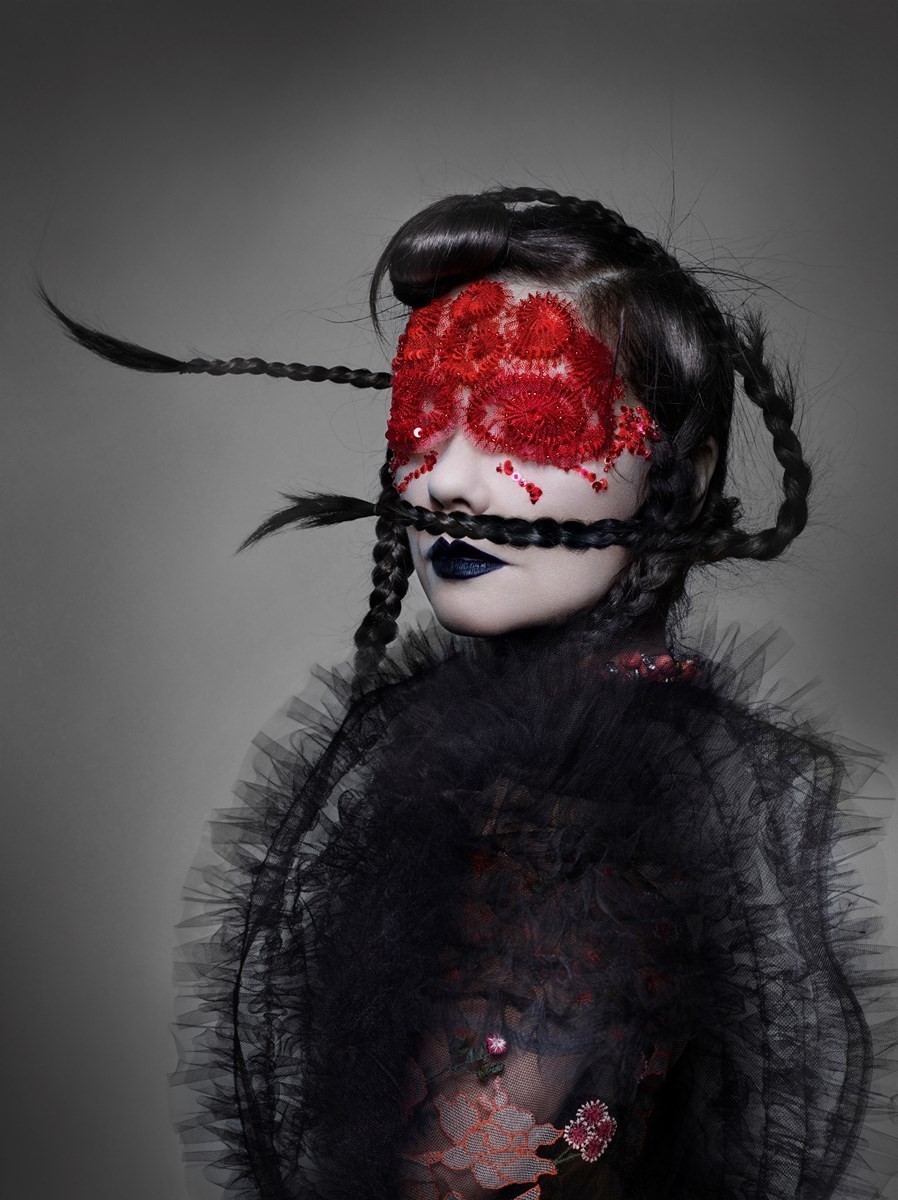
AM: Have you ever done music, Julia?
JD: I was in bands in Bath, but I couldn’t find a persona to perform, and I realised that I would need a character in order to perform. And I kind of, stumbled off into comedy.
AM: What kind of music was it?
JD: One of my favourite groups is Nirvana, and I wanted it to be quite heavy, but I kept ending up in really folky bands. I like folk music, but it was just too gentle. The men I was working with were always stoned, and had no ambition, and I was always like, “Come on, we can do this!” – always trying to move it on. In the end I thought, “I’m not gonna get anywhere with this.” I would like to front a band now, as a man.
B: I think he’s going to be quite large. I think there is a reason why you do what you do… it is just the context, you know? I could describe what a pathetic actress I would have been. I remember some movie was happening in Iceland when I was about 17. My mum suggested it. I can’t remember why I ended up there, but I turned up to audition. I can hardly even tell the story because it’s just so pathetic! The guy wanted me to wear clogs and a ponytail and I just didn’t say a word, but inside I was so hostile, like, “That is not me, you have no idea who I am.” That’s obviously not the point, right? The point is to become someone else. But I was like, “I’m not the sort of person that wears clogs and has a ponytail.” So I grin, and just walk out. I wasn’t arrogant, but … I was on this never-ending journey of being true to who I am, finding out who I am. In the meantime, I was in some pretentious arty post-punk poetic band, as if that is any better, but for me it was real.
"I was on this never-ending journey of being true to who I am, finding out who I am. In the meantime, I was in some pretentious arty post-punk poetic band, as if that is any better, but for me it was real" – Björk
JD: I understand that audition thing, though, it’s why I’ve wanted to write a lot of my own stuff. There’s something very humiliating about auditions. You’re going in with millions of other people, and you can tell they’ve decided the second you come through the door. You have to be a certain kind of personality to be solely an actor, and just want to give yourself up to someone and their view of a character.
AM: What about costumes? Björk, I know you always have a really instinctual palette of textures and colours that will fit a character.
B: They all grow as one big picture. So for Vulnicura, there were these visual clues, like neon yellow, because for me there is that sort of emergency of divorce; and lilac for the healing colour; and then wax, because that is almost like an ointment; and then the black latex, which is like the last person in the riddle, but that is because in a lot of the lyrics there’s a black lake. It is almost like you have this black lead as blood in your veins, when you are in sadness. Biophilia was like the music teacher who wanted to teach the world musicology. I thought she was this kind of airhead – like, you come to music classes at school and have this crazy hippie teaching you, her head is in the clouds – so that’s why she had this orange afro, but it also had orange and blue, sunset colours, which for me are kind of cosmic, so it’s almost the galactic thing with Biophilia. It sounds like total nonsense – I’m doing a very short version – but I will start gathering things. What is it like for you?
JD: Not as interesting as that, but with wigs it’s fun to try loads of things until it feels like the person. It’s often not what you would think. I will sometimes have a really clear idea of someone’s hair, but then you try something else, and go, “Oh, no, that is who it is!”

AM: How about the collaborative process? Is there a way that has typically worked for both of you?
B: Such a big thing for me has always been that people think someone else does my stuff. I never thought I needed to write on my albums 20 times, “Björk, Björk,” because I always took it for given, but then I was confronted with it. Such a big part of what I do is on my own, and I don’t really talk about that in interviews, because I want it to be a bubble. Just me, hiking, working on lyrics, working on arrangements on my laptop, editing. I would rather talk about how funny it was when Alejandro came down, and we had a blast. Because it is at that point where it becomes an extrovert thing. The introvert thing, I don’t want to share. So people just presume – and then I feel like, “It’s so unfair.” But then I saw a documentary about Vespertine, and I’m basically talking about the beats on the album, and I say, “Oh, I did 80 per cent of it.” Then I go and talk for five minutes about how I worked with these guys on the other 20 per cent, so basically it’s my own fault. Is there a lot of solitary time when you write?
"I’ll make myself work for long hours on writing, and it has taken me a long time to realise it makes me quite depressed. I’m so lost in that world, I can’t function in the normal world" – Julia Davis
JD: I’ll make myself work for long hours on writing, and it has taken me a long time to realise it makes me quite depressed. I’m so lost in that world, I can’t function in the normal world. If I have been at home writing all day, and then have to pick up my boys from school, I feel quite like an outsider from the other mums because none of them, as far as I know, do similar stuff. I can’t think of what to talk about, because I’m in this strange world that I’m writing about. Also, when you have kids you are at home so much, and I forget how to be with people.
B: Yeah, I’m definitely guilty of working too much, and then I have to remember to socialise. But I’m different, maybe because I had my first kid when I was 20. And I have six younger brothers and sisters, so I am used to being the oldest one and working and having kids all over you. Ever since I was a teenager in bands, I preferred to write from, like, noon till four, while my bandmates loved noodling and jamming and improvising until the early hours of the morning, and I could never get my head around that. Maybe because singing is so physical. I can do those long hours when I’m mixing though, then you just need your ears. I like to give myself all the time in the world to write, do it at home under zero pressure – not in a fancy studio which costs a lot. But then I take a month at the end of the album to mix. I say a day per song; I basically drink coffee for a month and don’t sleep. That is probably the most workaholic insanity that I do. I make sure someone is taking care of my children and cooking meals, and I am like a different person. But that’s OK because it’s just one month every three years. I bet it’s similar when you’re writing?
JD: With writing I can work it around my children, but filming… Recently I went away for six weeks, and it was so odd. With directing as well, I had no room in my head. I just had to hear that my kids are still alive, basically. I know they will be OK, but as a woman you have different judgements placed on you, that you can’t step away and focus on something else.
B: Yeah, and it is tricky getting different messages. My mum used to say, “I didn’t do the things I wanted to because I had you guys.” So I was like, OK, I’m not meant to do that, then – I am meant to do what I want to do and have kids. I used to say to my mum, “I wish you had just taken us to Italy or Africa or wherever you wanted to go.” I would have been fine with it, so that was what I kind of decided to do. But then you get messages that that is too self-indulgent. I think I’ve managed to balance that somehow. But there are other things that don’t make sense. Like, if your partner is really busy, it is very natural for a woman to say, “Oh, he is really busy next summer, I’m not going to take on a lot of work then.” You don’t even have to discuss that. You make sure that you are going to be able to stay at home. But a guy wouldn’t do that. Little things like that… we still have some work to do.
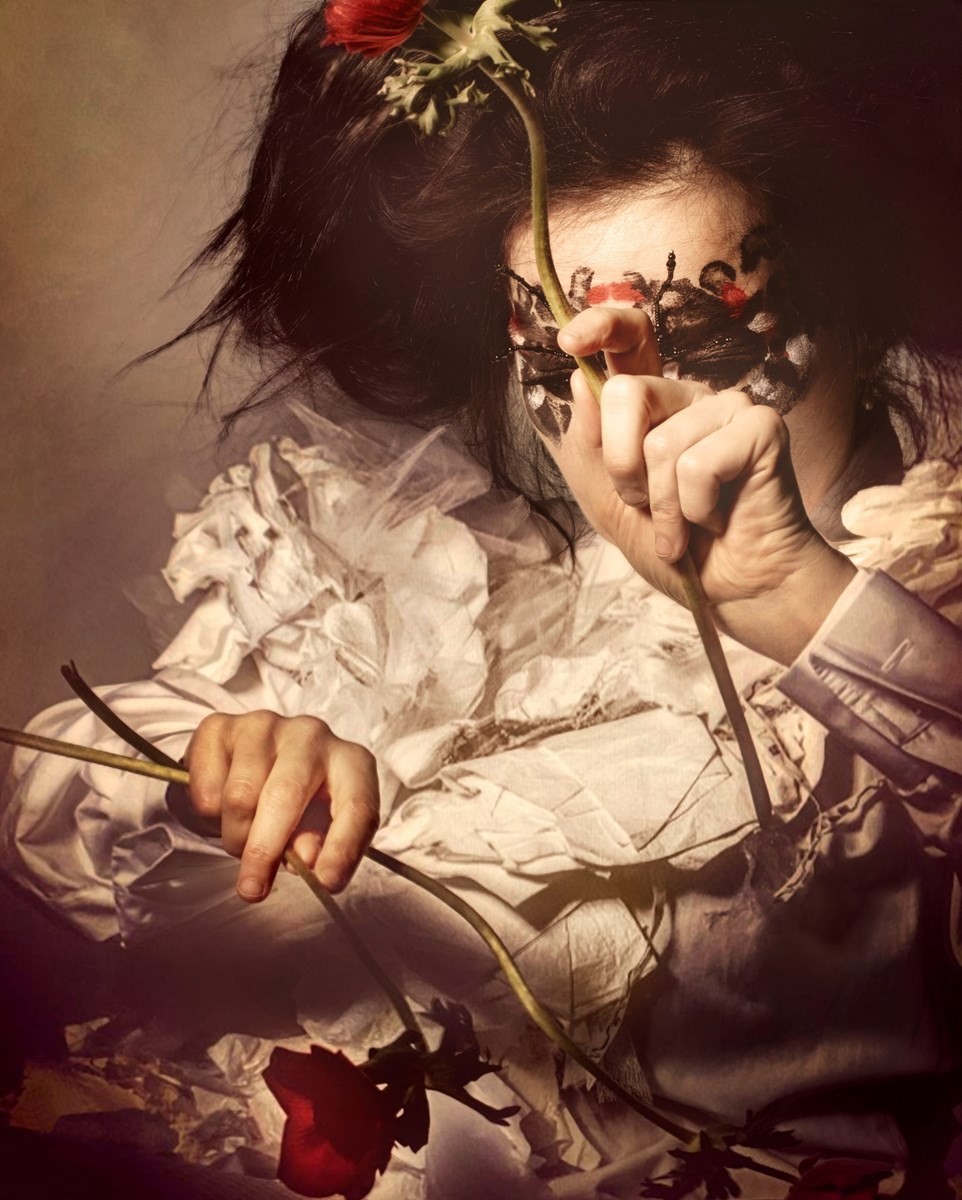
AM: Can you talk about a person you discovered as a child or a teenager that gave you the confidence to pursue your career?
JD: For me, seeing Julie Walters as Mrs Overall In Acorn Antiques. She is just a brilliant actress and very funny, but she also does brilliant drama as well. Even when she was young she could make herself look very old. Physically, she could play this kind of hunched woman. There’s something about her face and her body, it’s very mobile and odd. What about you?
B: There was this one album by Joni Mitchell called Don Juan’s Reckless Daughter that I discovered when I was 14. It is not her folky stuff. It is when she went off and invented her own music style, when she was most idiosyncratic and very feminine, but quite raw. Not pretty at all. It is very visceral, especially when it comes to the craft in the songs. I listened to that like 500,000 times, and learnt it by heart, and I still think that is in my DNA. Then, obviously, Kate Bush – I would listen to her non-stop.
JD: I did as well.
B: It was mostly just the courage. I didn’t understand it then, I was a very introverted kid, but now I can look at it and say, it was something about them forming their own worlds. It wasn’t that they were just fronting male stuff. People like Chrissie Hynde or Patti Smith didn’t do anything for me, much as I respect them as musicians, because they were just dealing with rock, you know? It was still the music my dad was listening to, it wasn’t that step to somewhere else. Kate Bush or Meredith Monk managed to include so many musicians, drummers, engineers, bass players, and they really got to flourish and be themselves, but still very much in their own worlds.
JD: That is also quite female, isn’t it? To be able to let people have that space, whereas a lot of men would put you in a box.
B: Yes, I think so. It is not about suppression or domination, it can all co-exist. Gloria Steinem said that feminism in the 70s had something in common with the Black Panthers. They were suppressed sub-groups, a little terrorist cell. Kinda like [80s TV comedy] ‘Allo ‘Allo!, which was huge in Iceland by the way! The BBC was huge there: Monty Python, David Attenborough… Fawlty Towers, definitely.
JD: I still watch that.
"I find some songs are like time capsules, or pills – you play the first notes and it is like taking a pill and you’re just there" – Björk
B: When my son was 11, 12, I bought the script of Fawlty Towers on the street in Soho, in Manhattan. He learnt it by heart. And then we moved there in 1993, and it was what we could do together, because obviously there’s a big age difference. Still when we meet it’s what we talk about, British comedy. Comedy united us.
AM: To finish, how about you both choose questions at random, and ask each other?
JD: Do you think other people regard you as a good listener?
B: Hmm – I could totally go both ways with that question, and they would both be true. I am definitely guilty with some friendships of moaning a lot more. And then I have other friendships where people tell me all their troubles and don’t get any of my shit. Then I have the really rare ones where it’s 50/50. What music has influenced your life?
JD: That is a massive question. The only way I can answer that is how much it will change my mood. There was a point on the second Nighty Night where I had just split up with someone; I was in a bad state, and the last thing I thought I could do was be funny. So I thought, “What can I listen to, to get into the right mood?” So I listened to Queens of the Stone Age every morning; that kind of music gives me a lot of energy. If you play an old song that you’ve done, do you get taken back to that point in your life?
B: I find some songs are like time capsules, or pills – you play the first notes and it is like taking a pill and you’re just there.
JD: When you’re performing you have to put on that show, don’t you? But you can have such chaos going on in the rest of your life. Especially in comedy, because it is all about being funny, but so many comedians are sort of depressed. Next question: describe a piece of art that you love?
B: I think Solaris by Tarkovsky. It pieces together science fiction, space and romance. So it has emotions, and it has planets. That is the shit I love.
JD: That’s a great answer!
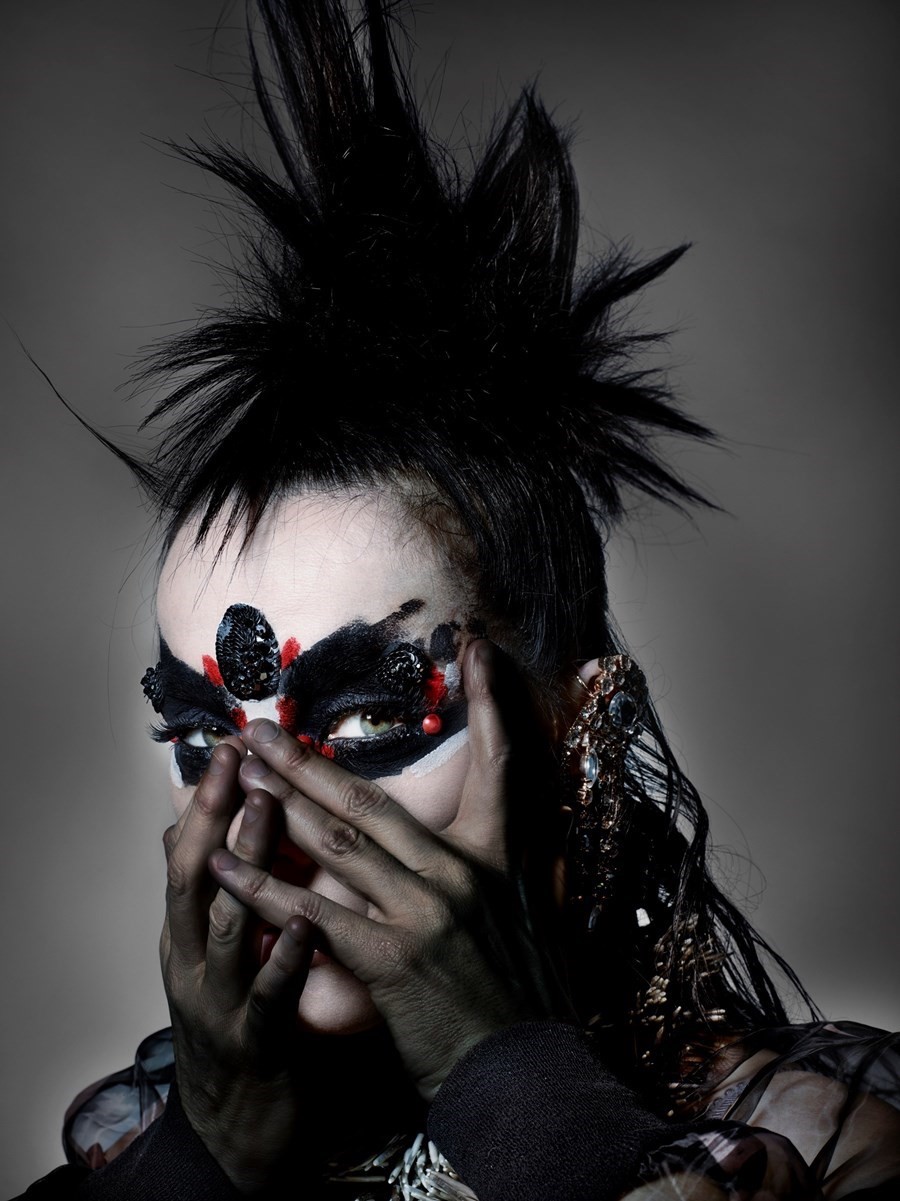
AM: I wonder what defines something as a failure or as success, for both of you. Julia, for you, is it simply if it is funny or not?
JD: Pretty much. Bottom line is, if I find it funny it is good, and if I don’t find it funny, it’s awful. I find failure really hard to deal with. So for me, for example, the first series of Nighty Night was good, and the second was bad. I feel that was a failure, and therefore a waste of my time.
B: But they’re amazing! I always thought it was interesting, the balance between people who do a lot, and then leave it to others to edit them, and then people who are really selective, and just do one thing every 10 years. I always wanted to be kind of in the middle. I decided to give myself a long rope, because I have seen so many people get stuck on making that one, perfect album.
JD: I think I go into the really selective box, taking too long over everything. So I was very nervous to direct, but then I thought, when you are on your death bed, how important is it going to be that something didn’t quite work? I do think, artistically, you have got to keep trying things.
"It is so ridiculous, this narrative of success and failure. Like, if you do something amazing, the next thing has to be awful. It’s like the weather or something" – Björk
B: Maybe some things won’t be immaculate, but it will push you out of the comfort zone. Looking at my favourite music, I really love albums where there were two or three songs that are amazing, but wouldn’t have happened unless the person had gone to that particular place and did seven OK songs, but three magic ones. I am a total music nerd, and I love the sort of faulty bits that you can hear through an album that was done 30 years ago, when they’re feeling it through, haven’t quite found it yet, and then, on song seven, everything falls into place. It becomes more precious or something. Sorry to reference back to Kate Bush – but it was kind of hilarious to listen to her in Iceland. I would get the albums many years after they came out, so I didn’t have any context, I was just on my own listening to them. And all of my favourite songs were like the B-side of the third single. And then I saw some documentary on her, it was the first time I saw things from a British point of view and they were talking about, “She was number three in the charts, and was on Top of the Pops, and did much better than the failure of the album before.” And it was the total opposite for me! It is so ridiculous, this narrative of success and failure. Like, if you do something amazing, the next thing has to be awful. It’s like the weather or something. Ten years later somebody watches it in Iceland or China and it’s totally irrelevant.
AM: Have you both noticed younger people rediscovering your older work?
JD: My godson is 20 and at university, and apparently he and his friends have started watching Nighty Night, which is quite weird. What about you?
B: I think you are more adored than you think, Julia. You should Google it! I have definitely noticed, in the last couple of years, some wave in the next generation. I am working with Alejandro, and he is 26 from Venezuela. We were joking because some guy did an online survey of where my fans were – somehow you can map that out – and apparently my typical fan is a 20-year-old Mexican gay guy! I was really proud! I wouldn’t have aimed for that, my life’s work, but I’ll go for that. I do have a feeling that there is something in the zeitgeist, that it is time for some matriarchal energy, in the same way I looked up to Kate Bush. Anyway, I was pretty chuffed.
Hair Eugene Souleiman at Streeters; Make-up Peter Philips at Art + Commerce for Dior; Masks embroidered by Lesage; Photographic assistants Markn Ogue, Britt Lloyd, Laura Falconer, James Stopforth; Digital tech Joe Colley; Styling assistants James Campbell, Lydia Simpson; Hair assistant Alfred Sackett; Make-up assistant Estelle Jaillet; Post-production Mark Boyle at Epilogue Imaging; Production Sylvia Farago Ltd; Production assistant Rose Easton
This article appears in the S/S16 edition of AnOther Magazine.
